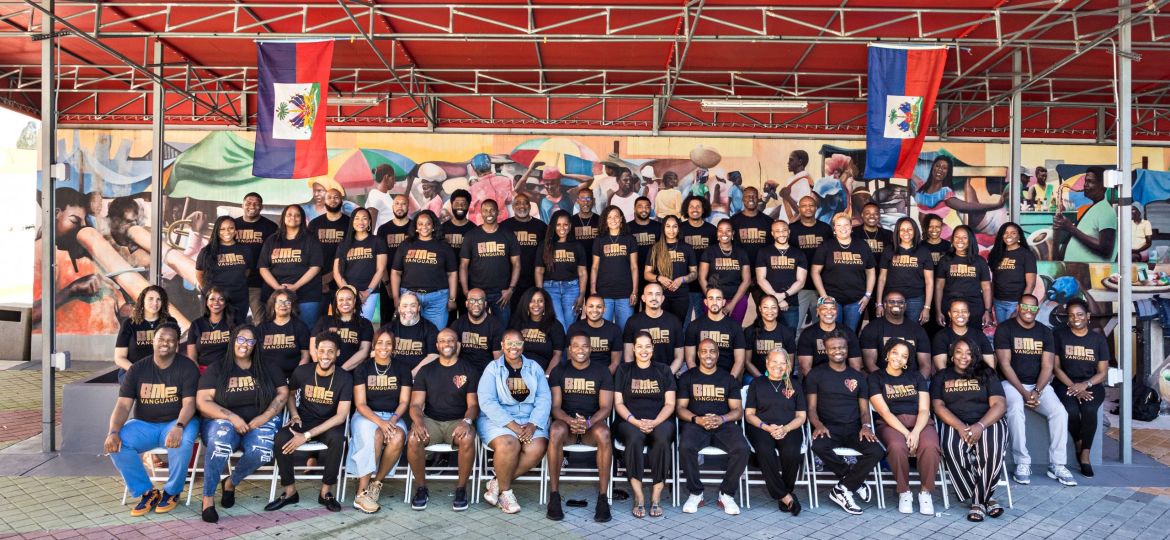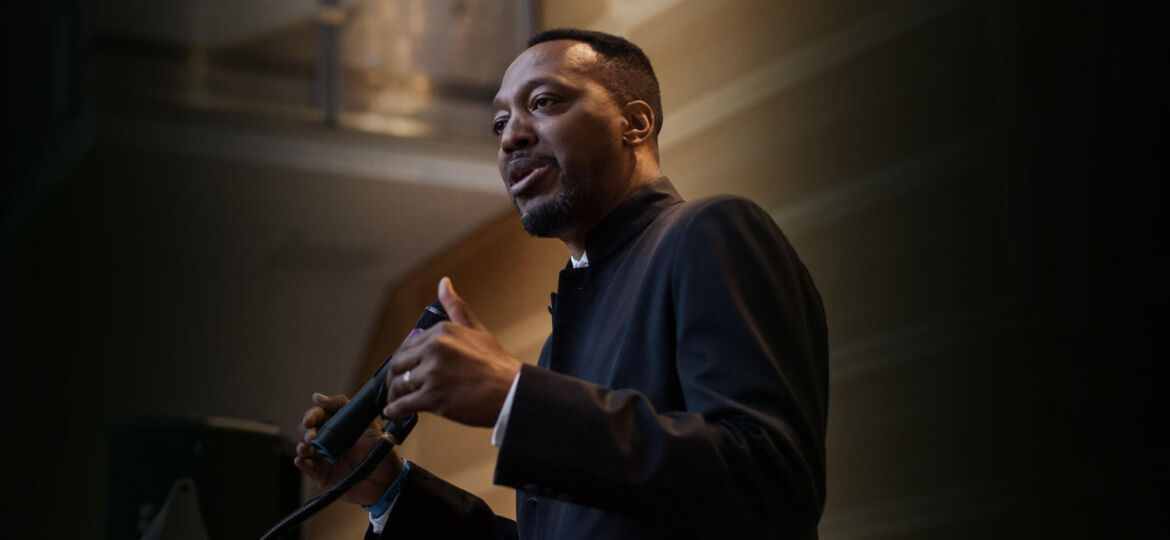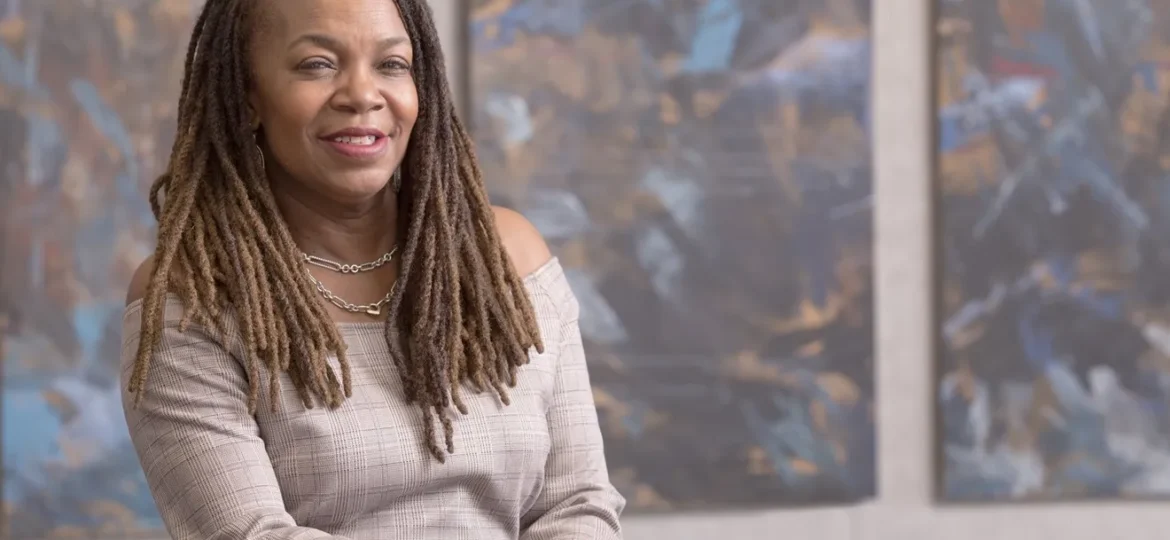Movements for racial and social equity cannot succeed as long as their members and supporters use stigmatizing language about the challenges they face, social entrepreneur Trabian Shorters said recently on the “Interfaith America with Eboo Patel” podcast.
Even when the motivation is to support people, describing them as “homeless, disadvantaged, underserved, at-risk, high poverty, bottom of the pyramid” actually blocks their progress, Shorters said during the Nov. 15 episode moderated by Patel, a civic and interfaith leader who serves as the president and founder of Interfaith America.
“You can’t dispel an idea by repeating it. To say that you don’t want poverty is to focus on poverty.”
“A central idea to start the conversation is, you can’t dispel an idea by repeating it. To say that you don’t want poverty is to focus on poverty. To say that you don’t want crime is to focus on crime. You don’t want injustice, is to focus on injustice. What you feed has power.”
A retired tech entrepreneur and bestselling author, Shorters is CEO of the BMe Community, which he founded to apply his research into a cognitive framework known as “Asset-Framing for Equity.” The approach prepares users to seek justice and systemic change beginning with a focus on community strengths.
But making the transition to asset-based perspectives and vocabularies requires an appreciation of the power of deficit-based narratives to trigger inherited, physiological responses to “avoid, control or kill,” he said. Using terms like “at-risk” or “low-income,” even supportively, subconsciously triggers those responses in listeners.

“You have your threat response. That’s the problem … When you use that language over and over again, you make compound associations with any group. Every time you say the name of that group, all those associations come with it.”
The power of that narrative undermines any cause it’s used to support, Shorters said. “We do it by stigmatizing the people at the center of the question, such that even if you win … you’ve won by writing them into the public narrative as a problem. That’s the way they will always be referenced when the name comes up.”
This dynamic has been the reality for African Americans more than any other group, Shorters said. The Black Love Campaign was created to bring the asset- and aspiration-based approach to the Black community.
“Currently, if you’re Black or if you’re someone who thinks about Black progress, we’re all taught to focus on what is broken and threatening and dangerous and wrong,” he said. “That’s generally when you speak about Black people. It’s super consistent to attach those negative terms.”
Even further, the negative narrative is so ingrained that it usually seems odd for Black Americans and their supporters to apply positive terminology to community and its movement. Shorters referenced studies by the Centers for Disease Control showing that Black fathers spend more time doing tasks like reading to and combing their children’s hair than other dads.
“Why is it that it feels uncomfortable to so many people to just say something generically positive about Black males without any caveat? Black men are the most engaged fathers in America. Why does that feel like an incomplete sentence?”
The answer, in part, is deeply ingrained habit, he said. “Black leaders and their allies are taught to denigrate Black people in the name of helping them. That culture of denigration is an artifact of our aspiration.”
The centrality of whiteness is another of those aspirations for Blacks and other Americans, he said.
“The way this culture is established, we center white folks in nearly everything, and then we compare ourselves and the ranking always has to be where the white folks are on top, just as a cultural reflex. … Insisting on denigrating yourself and insisting on centering somebody else in your own narrative is spiritual death. Even when you win, you lose.”
Shorters challenged listeners to imagine thinking and speaking of themselves from the standpoint of their goals and hopes for life, rather than about how they fall short.
“What if every reference to Black people didn’t begin with something denigrated? What if we developed a different model?” he said. “Then your mind and your behaviors and everything else would adjust accordingly. Ultimately, that’s the objective.”
Those yearning for a positive shift in perspective are not responsible for changing other people’s minds about them, Shorter added. “The objective is to get Black people to change their orientation to themselves. That’s the core objective because it doesn’t matter what other people call you. It only matters what you answer to. Currently, we answer to ‘at risk,’ ‘low-income, blah, blah, blah.’”




